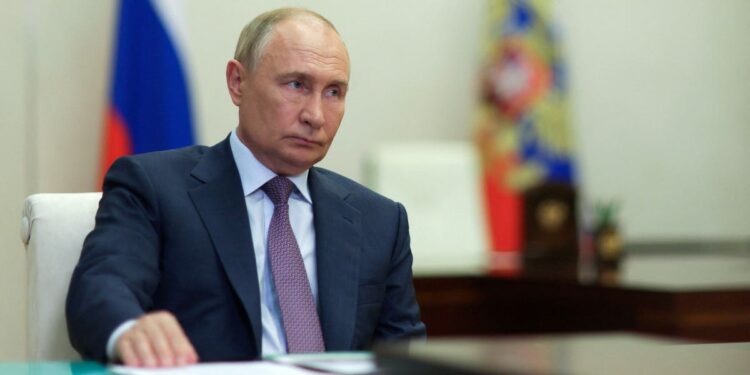Potential for Enhanced US Sanctions on Russian Energy Exports
The United States may take additional steps to strengthen sanctions regarding Russian energy exports. The current global oil landscape shows a robust supply with low price levels and decreased demand, which creates a strategic moment for the US to intensify actions against Russia, as indicated by Treasury Secretary Janet Yellen in her remarks to Bloomberg.
In an interview on Wednesday, Secretary Yellen highlighted that the US is contemplating new constraints on Russian energy transactions, crucial for funding the Kremlin’s military efforts. “An interesting aspect of this situation is that the oil market appears well-supplied,” Yellen noted. “Prices are relatively stable, demand is weakening globally, and there has been an uptick in supply.”
Concerns about diminishing demand—partially driven by China’s slowing economy—have been pressuring global oil markets. Analysts from Macquarie project significant oversupply next year driven by increasing non-OPEC production coupled with modest growth in demand metrics. Currently, International Brent crude futures have dropped 4% since the start of the year while West Texas Intermediate crude has seen a 1% decline over the same timeframe.
“The easing conditions of the oil market present us with an opportunity for potential further actions,” Yellen added when discussing future sanctions without revealing specific details.
Shifts in Energy Sanction Strategy
Kremlin spokesperson Dmitry Peskov remarked on Wednesday regarding these potential new sanctions: “The outgoing administration leaves behind a challenging legacy” in terms of US-Russia relations based on information sourced from TASS state news agency.
US measures have progressively tightened their grip on Russian energy revenues over time. In November alone, Washington imposed sanctions on Gazprombank—the last significant Russian financial entity exempt from previous restrictions—which is instrumental in processing international transactions related to both oil and gas enterprises.
These new developments reflect a shift away from prior stances held during early conflict stages between Russia and Ukraine when G7 nations enforced price caps and restricted Russia’s access to Western maritime services alongside brokerage aid.
Maintaining Market Stability Amid Sanctions
These restrictions aim to ensure that global energy markets function smoothly enough to avoid drastic price increases or inflation while simultaneously curtailing revenue streams flowing into Russia’s war funds. Fortunately, ample worldwide supply amidst waning demand reduces fears of substantial price hikes even if Russian output were significantly restricted.
In response to Western sanctions impacting its energy sector adversely affecting sales channels; Russia now primarily channels most of its crude exports towards India and China instead of Europe or North America. According to calculations issued by Bloomberg based upon official data releases, Russia experienced a staggering 21% decrease in its oil revenue compared with last year amid declining average prices across international markets this past November.



